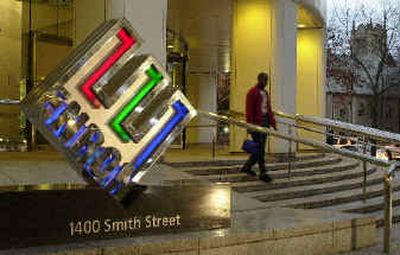Enron scandal changed corporate culture

MIAMI — Kenneth Lay’s court date Thursday was a big moment in the Texas-sized scandal of Enron. But the tendrils of the saga stretch a lot farther than Texas.
From everyday issues like the electric bills and retirement dreams to more fundamental concerns like corporate corruption and weak-willed regulators, the fall of Enron ripped at topics that nearly every American considers important, gravely shaking society’s faith in some iconic institutions.
Perhaps its greatest legacy is the stunning re-examination of American life and commerce that continues today, experts say.
“Enron has sort of become a shorthand for what happened, like the way a third-rate burglary known as Watergate became a metaphor for many other things,” said Ralph Ward, publisher of Boardroom Insider, a newsletter that follows corporate governance issues.
After Enron, there was no business as usual.
Wall Street analysts were taken to task — and to court — for shoddy research, short-circuiting a clubby old-boy network that dished out questionable investor advice for years.
Arthur Andersen, a venerated accounting firm, was put to sleep by government officials amid charges it turned to crime to keep a crooked client happy.
Powerful regulators, like Harvey Pitt, the chairman of the Securities and Exchange Commission, were out the door.
A new breed of state enforcers, epitomized by New York Attorney General Eliot Spitzer, took their place and muscled in on the traditional turf of the feds.
“Enron signaled a realization that there was no checks-and-balances system in corporate America,” said Laurence Stybel, a principal at Board Options, a Boston consulting firm.
If it weren’t for Enron, some analysts say, Spitzer wouldn’t have taken on mutual funds for questionable trading — and won.
Martha Stewart might not have faced prosecution — or have lost.
More broadly, Enron’s demise debunked many myths of the market-driven New Economy that rose in the 1990s, says Charlie Cray, director of the Center for Corporate Policy. That economy was slavishly devoted to principles like deregulation, privatization and globalization — all of which helped Enron construct a house of cards.
“Generally, Enron revealed the failures of the self-regulated model of business,” Cray said. “It was sort of a perfect storm.”
One sweeping change wrought by Enron was the Sarbanes-Oxley Act. Among other things, it required chief executives and chief operating officers to sign off on financial statements, assuring their accuracy.
It also limited functions auditors could perform for a company — a response to the outrage many felt over Arthur Andersen’s lucrative consulting deals with its auditing client.
“The perception of auditor independence changed,” said James Robinson, a prominent Miami Beach CPA. “It was a big black mark” on the industry.
After Enron, executives hit by financial scandals found themselves facing civil and criminal charges, said Dan Newman, a Miami attorney who was formerly in the enforcement arm of the SEC.
“I think Enron was special,” Newman said. “It created an atmosphere that went from ‘let business do its thing’ to much more oversight. I don’t believe all these indictments would have come about without Enron.”
But Enron also challenged economic beliefs that took root in the go-go stock market of the 1990s.
For instance, Enron workers had 401(k) retirement plans flush with the company’s stock, reflecting the growing trend of replacing pensions with company stock.
Enron workers, some already retired, lost $1 billion in the collapse.
In the aftermath, many companies allowed workers to diversify their 401(k) holdings and made it easier to sell their employers’ shares.
Nevertheless, investment-based retirement plans continue to replace pensions, said Alicia Munnell, director of the Center for Retirement Research at Boston University.
“You would have thought that Enron would have been a big wake-up call,” she said.
In contrast, Enron’s problems appear to have substantially stopped the effort to deregulate electricity markets. The company owned power plants — and once planned several for Florida — but was later alleged to have paved the way for it and other companies to manipulate the market in California, creating high prices and power outages.
In the end, Enron and its ilk captured the public imagination because they seemed so smart and invincible only months before they fell, said Ward, the Boardroom Insider publisher.
“Companies in these scandals were either new or had grown up very quickly,” Ward said. “They were at the frontier. But usually at the frontier there’s a carpetbagger who pockets a lot of money and tries to get out of town very quickly.”
Nell Minow, who heads The Corporate Library, a shareholder advocacy organization, says ultimately it’s a corporate mind-set, not more laws, that may prove the most lasting post-Enron reform.
“To my mind, the most important legacies haven’t been regulatory or legislative, but market responses,” she said. “Moody’s has downgraded companies based on governance issues, for instance. That had never happened.”
Boards, she added, now know they can’t just be handmaidens to the CEO. They must assert their independence, perform their assigned task of working for the shareholder and demonstrate their expertise.
In the past, a director’s financial credentials didn’t seem to matter.
“It wasn’t that long ago,” she noted, “that O.J. Simpson was on an audit committee.”